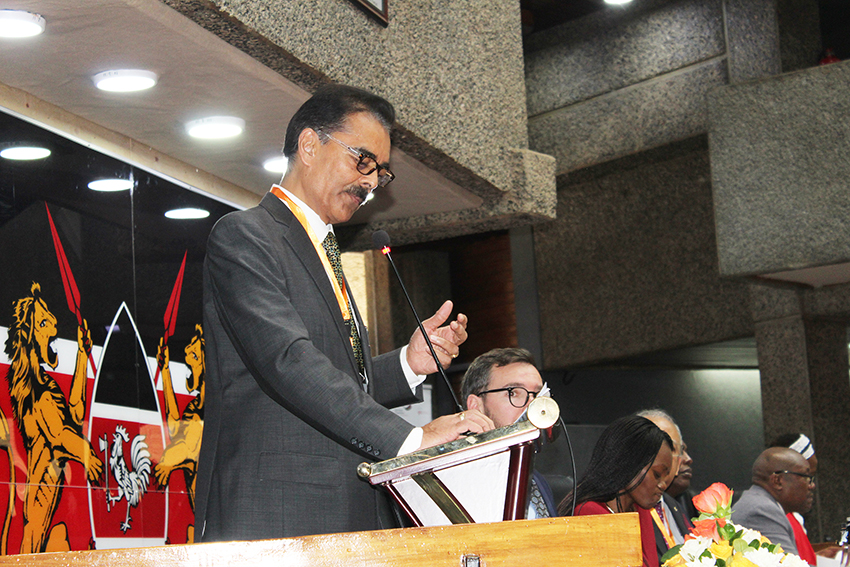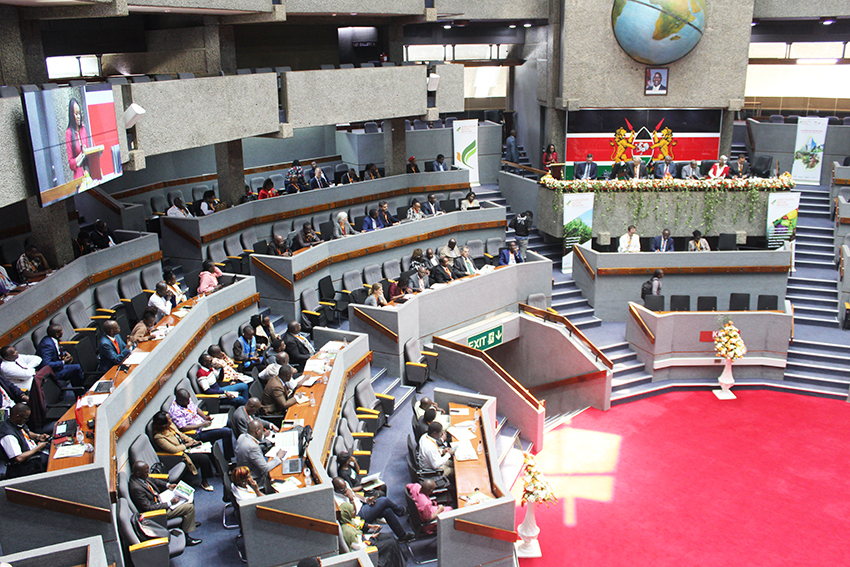by Mary Mwende

At the 4th National Agriculture Summit, Vimal Shah, Chairman BIDCO Africa, delivered a compelling vision for the future of agriculture in Kenya, urging a collective commitment to sustainable practices.
Addressing a gathering of stakeholders, including government officials, diplomats, and farmers, Shah highlighted the vital role of agriculture in the nation’s economy, which contributes approximately 34% of the GDP and employs over 40% of the population.
“Sustainability is often defined through the lens of the triple bottom line. People, planet and profits, ”remarked Vimal. Given the sector’s foundational importance to rural livelihoods and food security, addressing its challenges is imperative for economic stability.
Shah outlined five essential pillars for fostering sustainable agriculture in Kenya:
- Policy Coherence: Currently, the agricultural sector grapples with a fragmented policy landscape that complicates the operational environment for farmers. Shah called for a unified policy framework that simplifies regulations and alleviates burdens, such as the requirement for multiple licenses that stifle competitiveness. He emphasized the importance of digital solutions for data collection, advocating for a zero-cost approach for farmers. By leveraging technology, the government can streamline processes while ensuring compliance and efficient data management.
- Public-Private Dialogue: Recognizing the need for collaboration, Shah stressed the importance of re-establishing consultative platforms that facilitate dialogue between the public and private sectors. He urged the reinvigoration of institutions like the National Agriculture Forum to ensure that the voices of farmers are integrated into decision-making processes. This partnership is vital for addressing the challenges within the sector and fostering unity, which is essential for growth and sustainability.
- Competitiveness through Science and Productivity: Shah highlighted the urgent need for Kenyan agricultural products to compete effectively in regional and global markets. He advocated for the adoption of scientific methods and precision farming techniques, emphasizing the role of agricultural technology (ag tech) in increasing productivity and reducing operational costs. By transforming Kenya from a consumer market to a producer economy, the nation can enhance its agricultural exports and economic resilience.
4. Transition from Rain-Fed to Irrigated Agriculture: With climate change posing significant risks to agricultural productivity, effective water management is crucial. Shah proposed merging the Ministry of Irrigation with the Ministry of Agriculture to promote efficient water use and sustainable practices.

He cited successful local initiatives in water management and suggested implementing government-subsidized irrigation systems to bolster productivity and resilience against climate variability. Such initiatives can significantly enhance agricultural yields and food security.
5. Rethink and Reset for Rapid Growth: Finally, Shah called for a comprehensive reevaluation of current agricultural practices, advocating for a shift from traditional staple crops to high-value products. By enabling smallholder farmers to engage in value-added agriculture while larger cooperatives focus on staple production, Kenya can improve its competitiveness in the global market. Removing barriers to productivity and revisiting taxation and regulation will pave the way for innovation and growth.
In conclusion, Vimal Shah’s insights resonate as a clarion call for all stakeholders to unite in a concerted effort to enhance Kenya’s agricultural sector. As Shah aptly quoted Winston Churchill, “To improve is to change; to be perfect is to change often.” This spirit of continuous improvement will be essential as Kenya embarks on its journey towards agricultural excellence, ensuring prosperity for generations to come.
